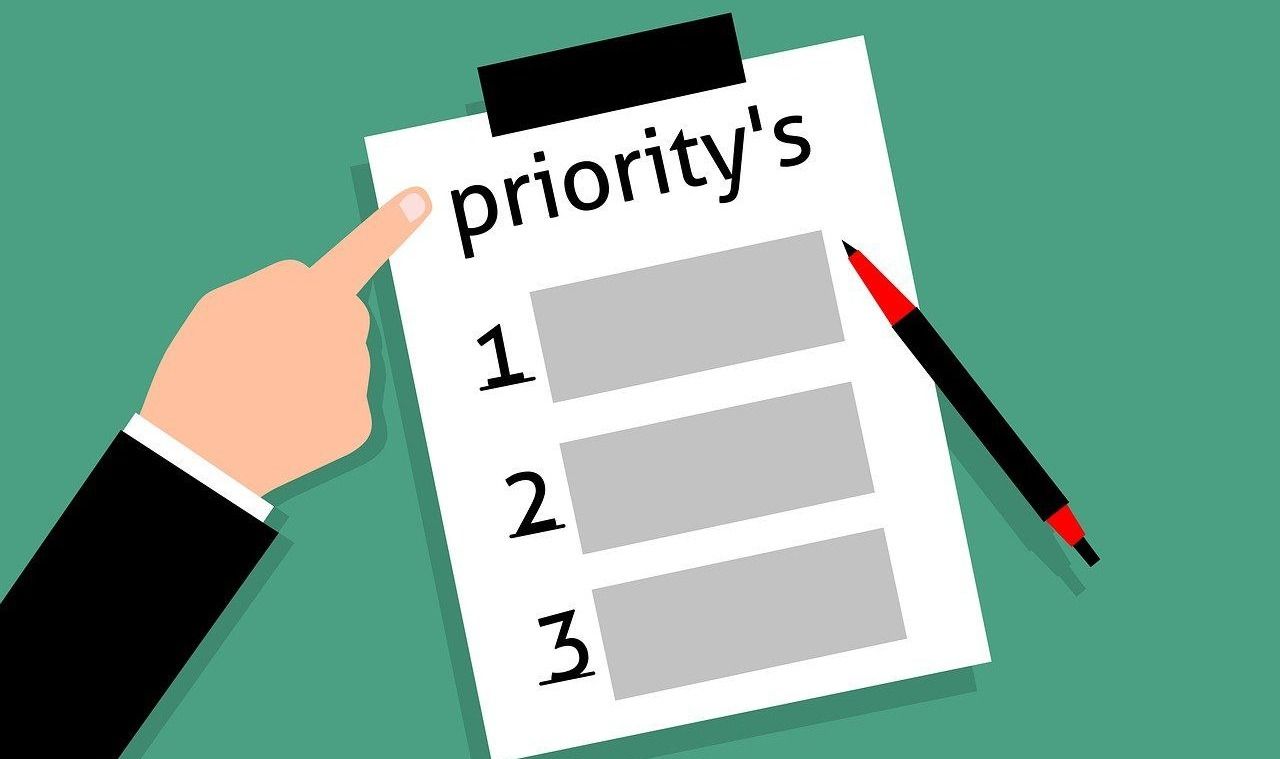Narcissistic Abuse: How to Leave a Narcissistic Parent
Growing up with a parent with Narcissistic Personality Disorder NPD can be an incredibly difficult experience, it doesn't have to lead to destruction. You always have the choice to leave them

Growing up with a parent with Narcissistic Personality Disorder NPD can be an incredibly difficult experience, it doesn't have to lead to destruction. Those who recognize the inflated sense of self importance, the the need for excessive admiration and the sense of entitlement as toxic behaviors, often are able to break free. They often find themselves strengthened by their resilience in doing so.
However those not able or willing to take control of the situation, may remain stuck under the powerful grip of the narcissistic disorder personality. Potentially leading them down a path unavoidably damaging for mind, body and soul alike.
Many adult children of narcissists do not realize they living with a parent with a mental health condition. Which does not surprise me, as there are many diagnostic and clinical challenges to getting a proper diagnosis. To get narcissistic personality disorder diagnosed is challenging. Many narcissists go undiagnosed nor seek treatment, until other mental disorders start to exhibit.
I hope you will take time to listen to my other audio casts on narcissistic personality disorder.
I have had many family caregivers that have taken on the task providing care for narcissistic parent. Because they were raised by the narcissist, they have been groomed to meet the needs of a parent with pathological narcissism. I think that many adult children of narcissists do not understand that what they experienced as children was not normal.
The negative implications of having a narcissistic parent are profound and lasting. A narcissistic parent fails to see beyond themselves - leaving the narcissist unable and unwilling to provide genuine love or support any nurturing healthy relationships. Their sense of self importance, haughty behaviors and need for special treatment is so urgent that it gets projected onto the ones who matter most – creating an emotionally distant bond built on unrealistic expectations instead of real connection and understanding.
The root cause of the Narcissistic Personality Disordered (NPD) person's unfiltered anger lies in their inability to empathize. Empathy is like a brake on emotions, able to regulate and rein-in our reactions. But for narcissists that control slips away when they enter an enraged state. Their verbal assaults can feel like a flood of abuse leaving you overwhelmed, helpless and intimidated.
This can leave adult children feeling unheard, insecure about perfectionism, as if loving affirmation must always be earned through rigid standards rather than unconditional acceptance rooted in mutual respect.
The personality traits of a narcissist's world revolves around them. They have a grandiose sense of self. They truly believe they are better than those who surround them. They holds no internal regard for interpersonal relationships or people in the past and present; to a narcissist family members or friends are just as disposable as another. However, the exaggerated self image hides an inner emptiness that they cannot bear to confront-an internal darkness that is unable to be filled by external means alone.
I want to address why it is so hard for an adult child of a parent suffering from narcissistic personality disorder to break away. Despite their tendency to appear kind and caring, narcissists are some of the most difficult abusers to break away from. They are very subtle as a result of manipulation techniques such as "gaslighting," which leads their adult children feeling lost and lacking confidence in themselves.
Not surprising, the adult children often carry deep-rooted issues associated with low self esteem into adulthood - making them even more vulnerable for future exploitation. I have seen this over and over again in many of the adult children of a narcissistic parent.
Growing up with a parent with narcissistic personality disorder can have long lasting effects that profoundly impact their children's self worth and relationships.
It is all too common for these kids to feel they need to strive hard in order to be worthy of unconditional love, yet often find themselves settling into unhealthy relationships where approval comes at the cost of feeling constantly belittled or controlled.
In order escape this cycle, it's important we recognize narcissism as you detach yourself from its damaging power over your life - only then will true healing occur.
Realize you didn't grow up in a normal family. Growing up in a narcissistic household can leave children feeling stuck and confused, making it their normal to accept damaging relationships as they age. Many adult children lack the knowledge of healthy ways to set boundaries and even know what their limits are.
Most of my family caregivers that have a parent that suffers with a type of narcissistic personality disorder suffer from what the mental health professionals call subjective distress.
Let me explain. Subjective distress is associated with stressful or traumatic events and individuals have experiences of excessive and inhibiting fearfulness, depression, agitation, or other disturbing emotions. These are feelings that occur in other mental health disorders. Individuals that live under this stress eventually are diagnosed with substance use disorder, because they cope by numbing their feelings.
So, While cutting these ties will never be easy, understanding that the narcissistic parent's feelings are not paramount for your long-term health and well being. Creating your own narrative of what family means can provide independence from toxic cycles. Taking control gives you the opportunity for freedom—and possibly even joy!
I had a family caregiver tell me that she always feared her narcissistic mother. Now, as an adult child, she still worries that if she is late, she will be reprimanded. Her parent expected her children to exceed and maintain a certain physical appearance as well as achieve a certain grade point average in school She was expected to prioritize her mothers goals over her own. She was expected to be competitive and successful to meet her mothers dreams, not her own.
She realized in early adulthood as she witnessed how other friends parents treated them, that something was off. Everyone knows that childhood maltreatment has serious consequences for mental health, but what lies behind it? Recent research suggests impaired personality functioning might be the key.
Emotional neglect may be as destructive to children's mental, emotional and social development as more obvious forms of maltreatment. For those that experience both, the resulting psychological consequences can be difficult to shake off without specialized help. And my experience with the my family caregivers that were raised with a parent with narcissistic personality disorder have been severely traumatized.
It is no wonder that so many adult children of a narcissist have interpersonal difficulties. The constant theme I hear from adult children of a narcissist they always have hope that their parent will change. I have witnessed the damage that a narcissistic parent has impacted their adult children. One of the consistent personality traits, or narcissistic traits, is the ability to manipulate others.
As master manipulators, they know how to push buttons to get the result they want. They give hope that if you do the right thing at the right time, they will love you. That you will receive favorable treatment from this self centered parent. An adult child of a parent with narcissistic personality disorder have their self esteem is constantly being attacked. They live under terrible emotional distress and learn to question their own feelings.
The realization repeatedly hits the adult child in the face with they realize that any acceptance will last only as long as you agree with them and perform to their expectations. The emotional distress and lack of self worth in an adult child of a narcissist affects their own family and love relationships. Many adult children have low self esteem and discount their own emotions. Many develop other personality disorders or mental disorders like depression and anxiety.
What is Narcissistic Injury?

The American psychiatric association uses the term ‘narcissistic injury. This describes a phenomenon of misplacing one’s own self-hatred onto any person who the narcissist experiences as threatening. People with npd may see a threat as the slightest criticism, or an unkind glance or even nothing at all, but it may cause an intense emotional meltdown in response! Remember, people with narcissistic personality are always focused on personal gain, have an exaggerated self image, a sense of entitlement and false sense of self importance , and most importantly they experience easily hurt feelings.
Narcissistic abuse can lead to various mental health issues, including anxiety, depression, and PTSD. These issues are often exacerbated by social isolation tactics used by abusers to control their victims.
To the outsider, people with narcissistic personality may seem generous and caring. They seem confident and even appear to have high self esteem. The outsider sees the gifts and paying for schools etc as coming from a good heart, when these narcissistic behaviors are a way to control their adult children.
A perceived threat often manifests itself through verbal attacks and aggressive outbursts. These attacks are meant to punish those perceived to have caused offense. It is important for people encountering such responses from loved ones or acquaintances alike, to recognize narcissistic injuries for what they really are - misplaced insecurity turned against another unfairly. The narcissist’s personality traits and haughty behaviors interfere with the narcissist s ability to enjoy any healthy relationships. They always have poor family and love relationships. This include any professional relationships as well.
To my surprise, so many adult children of narcissists don’t even realize their parent has a narcissistic personality disorder. They are accustomed to the demanding narcissistic traits, such as the inflated sense of self, the need for excessive admiration. Many of my caregivers struggle to accept that their parent has a mental health problem. To the adult child raised by a narcissistic parent, they see the narcissistic traits as normal.
So, before I address how to leave a narcissist , I want to address that there are many different types of narcissistic personality disorders. Understanding the narcissistic personality traits will help you with the emotional and psychological separation from the narcissist in your life.
Different types of Narcissistic Personality Disorders

I am often asked if narcissism is a borderline personality disorder. According to the american psychiatric association , there are over 10 different borderline personality disorders. Borderline personality disorder and narcissistic personality disorder are in the same cluster of personality disorders because they share similar symptoms and characteristics. People with narcissistic personality disorder can also another personality disorder.
The diagnostic and statistical manual DSM includes these in the cluster b personality disorders. Many mental health professionals use the diagnostic and statistical manual to accurately diagnose the type of narcissism a person may have.
A mental health professional will also use to the narcissistic personality inventory to rule out other mental health conditions, as well as explore comorbid disorders. Comorbidities are distinct health conditions that are present at the same time. They may exist together for many reasons, including shared causes and risk factors.
The comorbidity of Narcissistic Personality Disorder (NPD) with other personality disorders, such as the Borderline personality disorder, Paranoid personality disorder, and Antisocial Personality Disorders, is very high.
There are actually many different types of narcissistic personality disorders. Overt narcissism, covert narcissism , malignant narcissism, and vulnerable and grandiose narcissism
If you're looking to understand what makes up Narcissistic Personality Disorder (NPD), it's important to know that the disorder is not one-dimensional. Covert narcissism, also known as vulnerable narcissism, or overt narcissism –while similar in many ways–differ greatly depending on how a person expresses themselves and their need for attention.
The Overt Narcissist
An overt narcissistic individual has a sense of importance, vain ,and outwardly vocal about their sense of entitlement; yet underneath they feel powerless or inadequate. and have poor self esteem.
The Covert Narcissist

Conversely, a covert narcissists internalize their grandiose sense of self, while heavily relying on external sources for validation . Covert narcissists tend to have social anxiety and passive-aggressive behavior. These narcissistic personality traits can often go hand in hand. Individuals may be especially prone to exacting revenge if they feel threatened or cornered - a response that could potentially cause further damage if not managed properly.
What is Pathological Narcissism?

Pathological narcissism, is a condition where the individual suffer from intense envy and the need to put others down in order to feel better about themselves. They often have an external lack of control. The pathological narcissist believes that their success is determined by what they can get or take from others, rather than find the skills within themselves. This narcissistic personality behavior may manifest as having multiple bouts of infidelity with many partners; a maladaptive attempt at gaining power over another person and convincing oneself one is "more" than everyone else.
Covert narcissism also known as vulnerable narcissism can be tricky to pinpoint. This type of narcissist personality disorder tends to shy away from the spotlight and their behaviors may seem more like a mental illness, such as bipolar personality disorder or severe anxiety - making them hard to spot amid other issues.
What is Malignant Narcissism?

Malignant narcissism is another type of narcissistic personality disorder. This is a form of grandiose narcissism. They appear to have high self esteem. This personality disorder is a dangerous combination of intense inflated sense of self worth, antisocial behavior, and aggression. Its maliciousness can be destructive to families or organizations as it damages interpersonal relationships without remorse - leaving those associated with the malignant narcissist feeling dehumanized. Although not an official diagnosis on its own, this extreme form of narcissistic personality disorder should not be taken lightly.
Nonetheless all narcissistic personality disorders share one common trait: blaming others rather than accepting responsibility for themselves. People with npd feel they are above the law, and deserve special treatment because of their inflated sense of self.
Recognizing Emotional and Psychological Abuse
Emotional and psychological abuse are common forms of abuse inflicted by individuals with narcissistic personality disorder (NPD). These forms of abuse can be just as damaging as physical abuse, but they can be more challenging to recognize. Emotional abuse involves manipulating or controlling someone’s emotions, while psychological abuse involves manipulating or controlling someone’s thoughts or behaviors.
Some common signs of emotional and psychological abuse include:
- Constant criticism or belittling
- Gaslighting or making someone question their own sanity
- Emotional blackmail or using guilt to control someone’s behavior
- Isolation or restricting someone’s access to friends, family, or other sources of support
- Threats or intimidation
- Manipulation or coercion
If you or someone you know is experiencing any of these signs, it’s essential to seek help from a mental health professional or a support hotline. Recognizing these abusive behaviors is the first step towards breaking free from the toxic cycle and reclaiming your emotional well-being.
The Cycle of Narcissistic Abuse
The cycle of narcissistic abuse is a pattern of behavior that can be incredibly challenging to escape. It typically involves three stages: idealization, devaluation, and discarding.
- Idealization: The narcissistic abuser showers their victim with attention and affection, making them feel special and loved. This stage can be incredibly seductive, and the victim may feel like they’ve found their perfect match.
- Devaluation: The narcissistic abuser begins to criticize and belittle their victim, making them feel worthless and unlovable. This stage can be incredibly damaging, and the victim may start to doubt their own self-worth.
- Discarding: The narcissistic abuser discards their victim, often abruptly and without warning. This stage can be incredibly painful, and the victim may feel like they’ve been left to pick up the pieces of their shattered life.
It’s essential to recognize the signs of the cycle of narcissistic abuse and seek help if you or someone you know is experiencing it. Understanding this cycle can empower you to break free and seek the support you need to heal.
Effects of Narcissistic Abuse on Children
Narcissistic abuse can have a profound impact on children, affecting their emotional, psychological, and social development. Children who grow up in a household with a narcissistic parent may experience:
- Emotional dysregulation: Children may struggle to regulate their emotions, leading to mood swings, anxiety, or depression.
- Low self-esteem: Children may develop low self-esteem, feeling worthless or unlovable.
- Difficulty with boundaries: Children may struggle to set healthy boundaries, leading to difficulties in relationships.
- Anxiety or fear: Children may experience anxiety or fear, especially if they’ve witnessed or experienced abuse.
It’s essential to provide children with a safe and supportive environment, and to seek help from a mental health professional if you suspect they’re experiencing narcissistic abuse. Early intervention can help mitigate the long-term effects and support the child’s emotional and psychological well-being.
So how do you Leave anyone with Narcissistic Personality Disorder?
Leaving someone with narcissistic personality disorder (NPD) can be incredibly challenging, but it’s often necessary for your own safety and well-being. Here are some steps you can take:
- Seek support: Reach out to friends, family, or a support hotline for emotional support. Having a strong support system can provide the encouragement and strength you need to take the next steps.
- Create a safety plan: Develop a plan for leaving the relationship, including a safe place to stay and a support system. Ensure you have access to important documents and financial resources.
- Set boundaries: Establish clear boundaries and communicate them to the narcissistic abuser. Be firm and consistent in enforcing these boundaries to protect your emotional well-being.
- Seek professional help: Consult with a mental health professional or a therapist who specializes in narcissistic abuse. They can provide guidance, support, and strategies for coping with the emotional and psychological impact of the abuse.
- Take care of yourself: Prioritize your physical and emotional well-being, engaging in self-care activities and seeking support from loved ones. Remember, your health and happiness are paramount.
Remember, leaving someone with NPD can be a process, and it’s essential to prioritize your safety and well-being. With the right support and resources, you can break free from the cycle of abuse and start your journey towards healing and recovery.
So how do you Leave a Narcissistic Abuser?
Escaping the grasp of a narcissist can seem impossible - they are master manipulators who know just how to make their victims feel trapped in a narcissistic relationship. Their emotional and psychological abuse often leaves long-term effects. Many adult children of a narcissist have poor self esteem, and severely diminished self-confidence. Others get into the cycle of the perpetual search for validation from their narcissistic parent. Still others develop other mental disorders like depression and anxiety.
It’s time to take back control of your life: with dedication and determination, you CAN rise above this trauma!
Know That They Will Not Make This Easy For You: Emotional and Psychological Abuse
A person with narcissistic personality disorder, often referred to as narcissistic abusers, may try to guilt trip you into remaining in an unhealthy relationship by projecting blame onto you and shifting responsibility for their actions. They will call your friends, extended family members, and even your employer to complain that you are ungrateful.
You can expect them to bring up religion, culture, and traditions as examples of what is expected from a child like yourself - but don’t be fooled! Your independence should come before any family obligations.
Breaking free from a toxic parent can be an emotionally turbulent journey, as many people come to realize that their family has been operating with dysfunctional dynamics for years. Choosing not to tolerate the abuse anymore will naturally lead to upheaval and chaos in the household – but also marks a crucial step forward towards establishing more positive relationships within your family system.
Making Yourself a Priority in Narcissistic Abuse Recovery

Let’s talk about the importance of making yourself a priority. I know this is a foreign concept for adult children of a parent with possible narcissistic personality disorder.
When it comes to your mental health and physical well-being, you should make yourself a priority. It can be hard. people with npd in your life will demand too much of you . They don’t understand why boundaries must exist when they have narcissistic tendencies.
Prioritizing yourself can help mitigate mental health issues caused by narcissistic abuse, such as anxiety, depression, and PTSD, which are often exacerbated by social isolation tactics used by abusers to control their victims.
It important you remember this will help decrease any negative impact on yourself, While still allowing room for other relationships. Even with parents who may possess Narcissistic Personality Disorder (NPD). Taking care of yourself is just as important! In fact, I recommend that you see a mental health professional to help you plan your escape. A mental health professional can also support you as you face your parent with any type of narcissistic personality disorder.
Taking a stand against your narcissistic parent can seem like an intimidating task. People with NPD, instill fear for a reason. However, you have the strength to break free from their manipulation and reclaim control of your life.
Setting Boundaries

Learn to disengage and detach and start to set boundaries. A person suffering from narcissistic personality disorders will make that a challenge for you. The National Domestic Violence Hotline is a valuable resource for those experiencing narcissistic abuse, offering support and guidance.
Be firm when establishing boundaries with them; although it may feel scary at first, this is necessary for both emotional and personal growth. Free yourself from these oppressive chains so that you can be independent—it’s time to live according to what feels best for YOU!
If you want to take your life back from a narcissistic parent, it’s time for courageous action.
Remember people with NPD, don’t take criticism, and they do not hold themselves accountable for anything.
To find your own path and break away from a controlling narcissistic parent, start by introducing healthy boundaries like brief phone calls or email exchanges. Avoid topics that trigger extreme emotions. There is no use in trying to reason with someone who may not be willing listen. If the situation escalates despite these efforts you might need to consider going entirely No Contact–a tough undertaking but necessary if it comes down to it.
Developing strong boundaries and asserting yourself against their manipulation can be difficult, but is essential in order to experience the emotional freedom that comes with independence. Dont allow your own emotions get in the way. I always tell my family caregivers that decisions made by emotions instead of logic are always poor decisions.
So, don’t let fear stand between you and self-empowerment; have faith in yourself as you reclaim ownership over your own path!
Taking a break from your parent with narcissistic personality disorder, might be harder than it sound. People with npd often view their children as extensions of themselves. The key to successful boundary setting is learning how to assert yourself when faced with inappropriate, controlling or abusive behavior.
Setting Limits

Setting limits should not lead to guilt; rather they equip you with the tools and strength needed for an empowered yet respectful relationship that honors both parties’ needs! Again, I recommend that you seek support from a mental health professional that deals with narcissistic personality disorder survivors.
Recognizing narcissistic behavior can help in setting effective limits. It’s even more critical to learn how to be assertive with parents who behave inappropriately. Paving your own path means having clear boundaries for yourself and not caving into pressure or manipulating tactics which may come from your narcissistic parent. Establishing these limits is an important part of valuing yourself. This is something that takes time and patience - yet ultimately can lead you down your rightful path to freedom.
It can be difficult for adult children of a parent with narcissistic personality disorder to recognize how their parent’s manipulative behavior has led them towards self-blame and guilt. This is why it’s important, as an adult, that you lift the burden off yourself by understanding your own needs were not necessarily wrong or bad - instead they have been ignored in favor of manipulation. Recognizing this shift will allow you a greater sense of freedom from having placed blame on yourself all these years; it was never yours to take in the first place!
Growing up as the child of a parent with narcissistic personality disorder can be incredibly challenging. Feelings are constantly suppressed, leaving you feeling tethered in an emotionally unfulfilling prison. But there is hope for liberation! Don’t hold back- let your emotions flow and find peace with the present moment by expressing what’s inside - laughter or tears! Writing down how you’re really feeling has been shown to help those stuck in this rut, so don’t hesitate to give it a try today.
As you drift off to sleep, take time for your personal and emotional healing. Allowing yourself the opportunity to explore feelings without judgment is a powerful way of tapping into creativity. Write out whatever comes up in that moment - don’t be afraid when emotions like laughter or tears come about. This can become an important outlet for understanding and expressing what lies within that has been kept secret from all else around you!
Let Go of the Guilt and Shame

Reflect on the strength, innocence and vulnerability that comes with being a child. Let go of any guilt or shame for having been subjected to parental mental abuse - it was not your fault. Know from within that you were an innocent soul who deserved love and care yet had no control over their circumstances. Acknowledge truthfully all those days when you felt overwhelmed by hurtful words; recognize this as external projections unable to touch the beauty inside yourself! Take comfort in knowing what really mattered could never be taken away–your power is inherent & constantly present…embrace & nurture your authentic self now.
Recognizing the signs of narcissistic abuse is crucial to letting go of guilt and shame, as it helps you understand that the manipulation and emotional harm were not your fault.
Taking care of yourself is absolutely essential to achieving inner peace. Commit to simple rituals and habits that recharge your body, mind, and spirit – like getting enough rest or eating nourishing foods. Don’t forget the importance of drinking plenty of water each day! Exercise helps with stress reduction too; try going for a walk outside in Nature if you can - its beauty will do wonders for an uplift in moods and overall well-being.
From the moment we enter this world, there’s a power imbalance between us and our parents. Though many of them take responsible use of their authority to nurture us as infants, others may take advantage for self-serving purposes – an exploitation known as narcissistic abuse which can have far reaching consequences on someone’s well being that lasts long into adulthood.
Although it can be difficult, sometimes setting clear boundaries with our parents is essential for a healthier relationship. If your parents have been manipulative in the past, removing themselves from your life temporarily may give you space to build up those needed walls and then strengthen them going forward – so if they do come back into the picture later down the road, their old tactics won’t work anymore. Rest assured that by standing firm on these new boundaries you will create a much better connection with them.
For those providing care for a parent of a narcissist, rest assured people with narcissistic personality disorders always find someone else to manipulate and meet their needs.
It’s time for freedom: cut those toxic ties!
You might also like this article:











